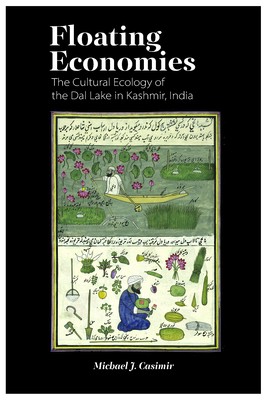
- We will send in 10–14 business days.
- Author: Michael J Casimir
- Publisher: Berghahn Books
- ISBN-10: 1800730292
- ISBN-13: 9781800730298
- Format: 15.2 x 22.9 x 2.1 cm, hardcover
- Language: English
- SAVE -10% with code: EXTRA
Reviews
Description
In the Himalayas of the Indian part of Kashmir three communities depend on the ecology of the Dal lake: market gardeners, houseboat owners and fishers. Floating Economies describes for the first time the complex intermeshing economy, social structure and ecology of the area against the background of history and the present volatile socio-political situation. Using a holistic and multidisciplinary approach, the author deals with the socioeconomic strategies of the communities whose livelihoods are embedded here and analyses the ecological condition of the Dal, and the reasons for its progressive degradation.
EXTRA 10 % discount with code: EXTRA
The promotion ends in 16d.17:43:17
The discount code is valid when purchasing from 10 €. Discounts do not stack.
- Author: Michael J Casimir
- Publisher: Berghahn Books
- ISBN-10: 1800730292
- ISBN-13: 9781800730298
- Format: 15.2 x 22.9 x 2.1 cm, hardcover
- Language: English English
In the Himalayas of the Indian part of Kashmir three communities depend on the ecology of the Dal lake: market gardeners, houseboat owners and fishers. Floating Economies describes for the first time the complex intermeshing economy, social structure and ecology of the area against the background of history and the present volatile socio-political situation. Using a holistic and multidisciplinary approach, the author deals with the socioeconomic strategies of the communities whose livelihoods are embedded here and analyses the ecological condition of the Dal, and the reasons for its progressive degradation.


Reviews